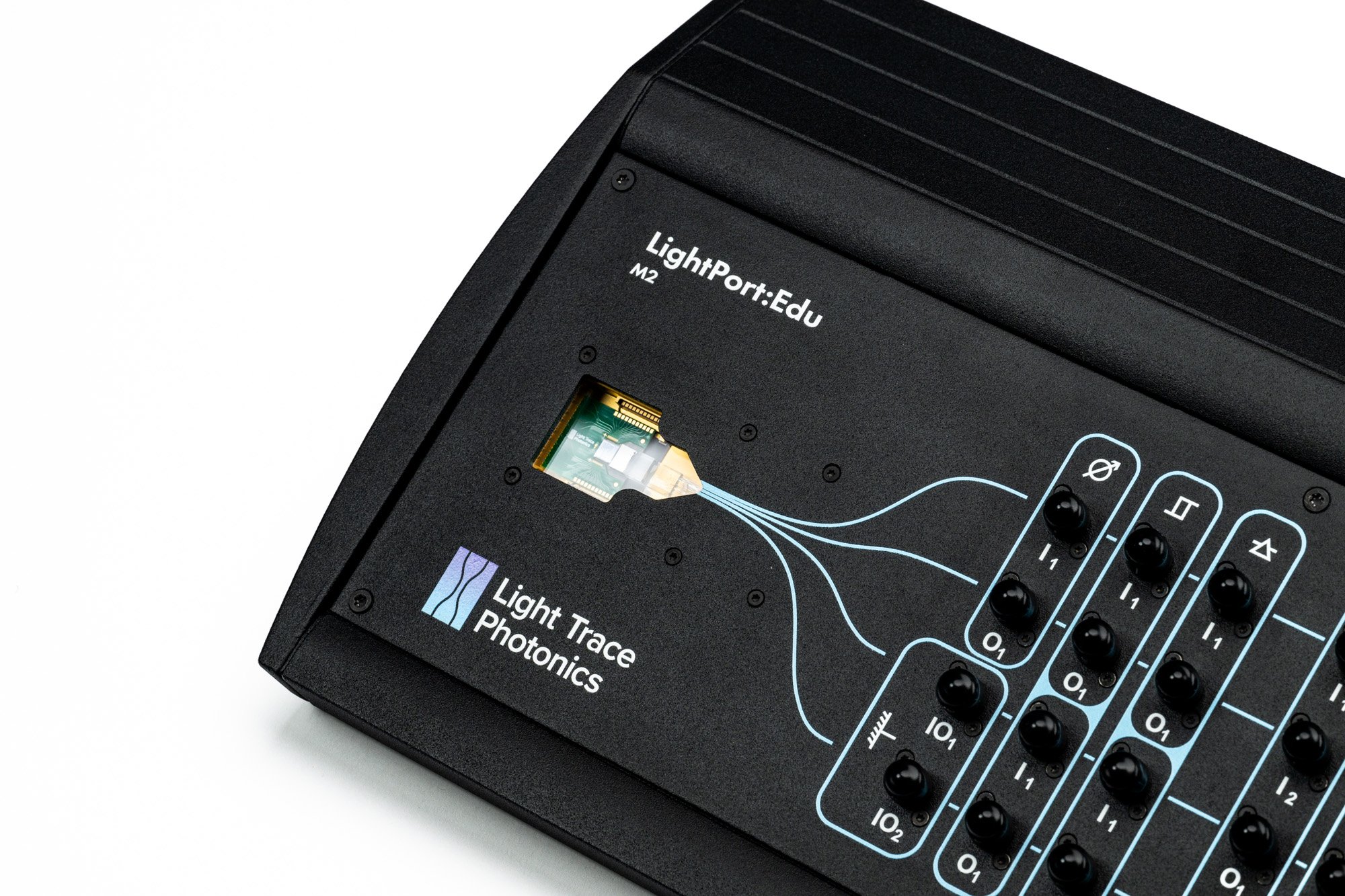
Access world-leading integrated photonics training
The LightPort module, developed by Light Trace, offers engineers the chance to build and program photonic systems using advanced integrated photonic components.
Equipped with an intuitive GUI for seamless learning and guided lesson plans spanning from beginner to advanced, engineers can dive right in, familiarising themselves with programmable integrated photonics while learning core photonic concepts.
Powered by a photonic chip
Key Features
Interactive Software for Enhanced Learning
Plug & Play with a broad range of components
Ideal for group learning & team building
What can you learn with the LightPort?
Waveguiding
Polarisation
Dispersion & loss mechanisms
Photodetection
Thermo-optics
Interferometry
Quantum computing
Pulse shaping & filtering
Reflectometry
Multiplexing
Modulation
Communication protocols
All while using the photonics platform of the future
What components are inside the LightPort?
Case Studies
-

KETS Quantum Security
KETS Quantum Security develop chip-based quantum key distribution and random number generation solutions for blue chip organisations.
“We worked with Light Trace Photonics on the design of a photonic integrated circuit and were thoroughly impressed.
Their technical expertise, responsiveness, and attention to detail greatly helped our design and development process.
They offered valuable insights, helping us avoid costly mistakes.
Highly recommended for anyone who needs support for their chip design processes."
— KETS Quantum Security
-

Zero Point Motion
Zero Point Motion is developing photonic chip-enabled, next-generation acceleration & rotation sensors.
Light Trace proved to be an invaluable resource to them during the early stages, providing support for layout and helping them meet tight tapeout deadlines. More recently, we have assisted them in exploring entry points into low-loss photonic platforms.
"The Light Trace team was knowledgeable, efficient, and will add value to any silicon photonics activity."
— Zero Point Motion
-

Thorlabs
Light Trace Photonics visited Thorlabs at their Ely, UK location to provide a training session for Thorlabs’ engineers.
The Thorlabs team gained valuable knowledge about the PIC market and motion control needs for the field, while getting hands-on experience coupling light into a PIC chip with the LightPort.
The experience provided insight into new customer use cases for Thorlabs’ technologies and will likely inspire future product designs.








